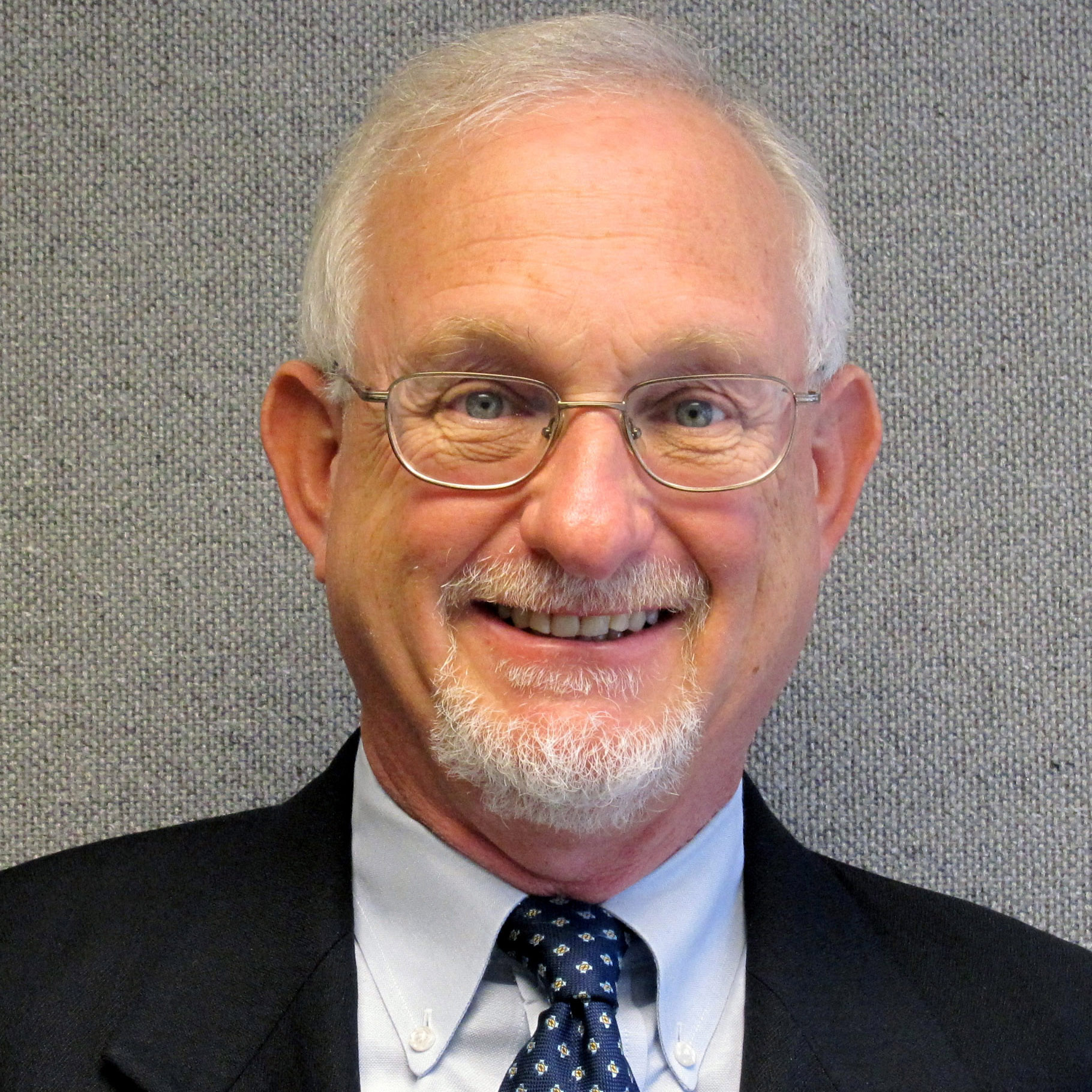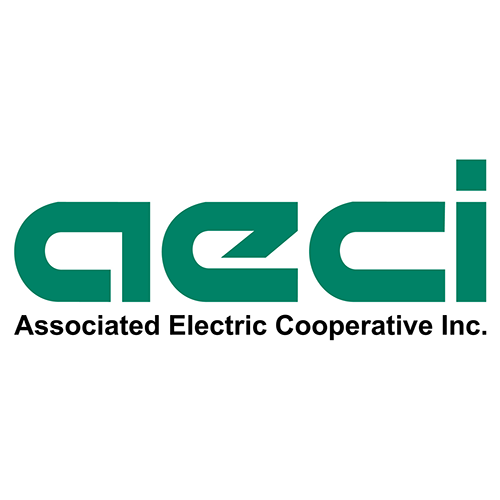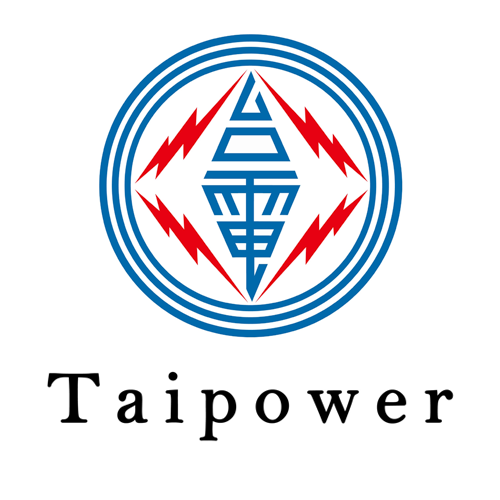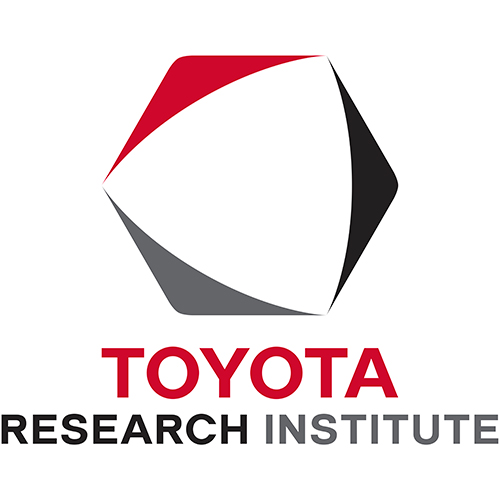About the Center
The Future Energy Systems Center examines the accelerating energy transition as emerging technology and policy, demographic trends, and economics reshape the landscape of energy supply and demand. The Center conducts integrated analysis of the energy system, providing insights into the complex multisectoral transformations that will alter the power and transportation systems, industry, and built environment. Our work draws upon MIT research in traditional energy-related disciplines, as well as from cross-disciplinary fields such as energy and environmental policy, climate science, carbon management, energy economics, behavioral science, cybersecurity, information technology, and artificial intelligence. Looking for the Low-Carbon Energy Centers? The Low-Carbon Energy Centers have been integrated into MITEI’s new Future Energy Systems Center, announced in spring 2021 as part of MIT’s Climate Action Plan for the Decade. All existing consortium-based LCEC projects and memberships continue within the Future Energy Systems Center.How it works
The Future Energy Systems Center serves as a single point of entry into MITEI and the MIT energy research community at large. As a member-supported consortium, the Center continues MITEI’s long history of working with companies throughout the energy sector. Member companies will include both energy suppliers and consumers demonstrating the impact decarbonization will have on a wide range of industries. The Center brings together ongoing technoeconomic and systems-oriented research from MITEI’s Low-Carbon Energy Centers into one unified center, creating a holistic energy system analysis capability with integrated research focus areas. These will initially include electric power, energy storage and low-carbon fuels, transportation, industrial processes, carbon management, and the built environment. Members are invited to participate in all focus area working groups without limit. Our work rests on two pillars: MITEI’s world-class range of capabilities in energy system modeling and analysis; and the cutting-edge campus-wide energy technology research program overseen by MITEI, spanning all of MIT’s departments, as well as our affiliated policy research centers including the Center for Energy and Environmental Policy Research (CEEPR) and the Joint Program on the Science and Policy of Global Change. Combining our deep knowledge of technology and modeling enables us to investigate the potential for emerging supply and demand-side technologies, along with policy to impact the energy system of the future—exposing new opportunities and threats within a host of industries, as well as unmet research needs.Benefits
Help shape the Center’s research agenda
Engage with MIT research teams and other industry leaders
Receive timely analysis, including cutting-edge research findings and insights
Participate in monthly seminars addressing emerging technologies, energy policy, and sustainability issues
Attend MITEI’s Annual Research Conference, framing the latest technology, economic and policy drivers shaping the energy landscape
Attend MITEI’s Spring Symposium, offering a deeper understanding of a timely energy transition topic
Projects
Accelerating commercial building electrification through science-based decision-making toolkit
- Designing a streamlined and targeted decision-making toolkit for industrial stakeholders (e.g., commercial building owners, energy firms, energy service companies, and utilities) to estimate the cost and benefit of building electrification
- Enabling policymakers to evaluate the required size of subsidy and regulatory programs, by providing essential parameters and counterfactual simulations, to enable large-scale electrification adoption in the commercial sector
- Generating practical recommendations for strategies that governments and practitioners can adopt to mitigate the primary market failures and increase the net benefit of electrification
Adaptive optimization and learning for daily operation of clean power systems
- Understanding the potential and limitations of the existing operating methodologies in the new environment of power grids with high penetration of renewables
- Developing data-driven stochastic and robust optimization models for real-time dispatch and commitment, and machine learning capabilities for reducing wind and solar generation uncertainty and speed-up of real-time decision-making processes
Affordable Multiday Energy Storage Using Ammonia, Methanol and/or Hydrogen
- Analyzing approaches for minimizing cost and GHG emissions of the production of ammonia and methanol
- Analyzing approaches for converting stored fuel to electricity
- Assessing costs of the most promising pathways
Agent-Based Capacity Expansion Modeling for Better Evaluation of Grid Resiliency
- Developing an agent-based investment planning model to explicitly simulate the decarbonization of electricity grids
- Assessing how the results of an agent-based investment planning model compare to those from existing optimization-based investment planning models
- Using the agent-based model to evaluate which technologies and policies promote grid reliability in the ERCOT and ISO-NE electricity networks
AI-based optimization for regional electric vehicle charging station networks
- Developing an innovative AI-based method for optimizing the charging infrastructure network, estimating charging demand, and managing energy efficiently.
- Developing machine learning-based methods to design time-of-use rates to shift electricity usage to off-peak times and to charging locations to minimize overall system costs and wait times.
- Evaluating and validating the methods developed for optimizing charging station networks and for time-of-use rate management.
Analyzing the large-scale supply of low-carbon hydrogen in Germany
- Developing a detailed multi-nodal model of the future low-carbon hydrogen value chain in Germany including hydrogen production, transmission, storage, and demand
- Identifying the minimum cost hydrogen supply chain design for different scenarios and timeframes
- Determining the optimal connections of Germany to other regions for importing hydrogen, low-carbon electricity for hydrogen production, and exporting of CO2. This network analysis includes international hydrogen transport options (liquified hydrogen, ammonia, etc.) specifically from Norway, France, and North Africa.
Assessment of Geologic Hydrogen Potential for Sustainable Energy Systems: A Cost and Emission Analysis Perspective
Assessing the viability of the global low-carbon fuel supply chain for maritime applications
- Building a maritime fleet model to perform techno-economic analysis and lifecycle assessment of alternative fuel pathways for a set of representative vessel types and powertrain technologies.
- Creating a global low-carbon fuel supply chain model to evaluate feedstock requirements, as well as costs and timelines needed to build a robust supply chain for each low-carbon fuel considered.
- Developing a science-based understanding of theoretical best-case limits for the technologies and processes involved in end use of alternative fuels.
Assessing role for natural gas in future low-carbon U.S. electricity systems
- Evaluating the role of natural gas-fired power plants (NG) in future electrical grids using an advanced, multi-period capacity expansion modeling framework with perfect foresight
- Modeling cost-optimal grid operations, investments, and retirements through 2050 using a detailed representation of the American Southeast’s electrical grid which includes inter-region transmission, variable renewable energy resource characteristics, brownfield capacity and lifetime and economic retirements
- Examining several pathways to a highly decarbonized grid, assuming rapid growth in energy demand through mid-century
Assessing vulnerabilities in global terrestrial and atmospheric hydrogen sinks and the risk of unintended future-climate consequences
- Determining the extent that climate change and land use change may impede the global soils’ consumption of atmospheric hydrogen.
- Assessing how increased atmospheric H2 due to reduced soil H2 consumption may increase concentrations and lifetime of methane and other greenhouse gases.
- Identifying potential tipping points which could dramatically increase the climate impacts of hydrogen leakage.
Atoms-to-enterprise analysis for decarbonization of chemical manufacturing: Case study of ethylene
- Studying alternate low-carbon routes for production of ethylene using a multi-scale analysis approach
- Utilizing techno-economic (TEA) and systems analysis to study the cost, scalability and life cycle environmental impact of four alternative decarbonization approaches for ethylene production
- Designing and characterizing a new class of active anode materials to enable an emerging decarbonization route via electrochemical oxidative coupling of methane
Can Mobility-as-a-Service (MaaS) really disrupt private car ownership?
- Understanding the factors influencing consumer willingness to adopt MaaS as a substitute for private vehicle ownership
- Measuring the "option value" of owning a car separately from the utility of using a car in the U.S.
- Exploring the system-level attributes of MaaS that will be most important in determining its competitiveness with the private automobile
Can Strategically Designed Industrial Carbon Hubs Enable Widespread CCUS Adoption?
- Characterizing the costs associated with building out carbon capture, transport, and storage infrastructure for the hardest-to-abate industries at scale
- Quantifying the role that carbon hubs can play in enabling broader industrial decarbonization
- Exploring the willingness-to-pay for CCUS investment and perception and barriers to CCUS technologies through semi-structured interviews with key stakeholders
Chemistry and climate effects of potential hydrogen leakage
- Carrying out model calculations to evaluate the Global Warming Potential (GWP) and temperature impacts of potential hydrogen leakage in the current and future atmosphere.
- Identify key uncertainties in hydrogen GWPs for long and short timescales.
- Evaluate the potential for hydrogen fuel use to contribute to avoiding exceedance of the 1.5 and 2°C thresholds identified by the Paris agreement for various scenarios of usage and leakage.
CO2 capture and conversion: The where, what, and who of co-location
- Examining optimal product-CO2 source-geographic location combinations while assessing scalability and costs.
- Developing technoeconomic models to estimate the end-to-end cost of carbon capture and conversion including comparison of capture and conversion as separate steps versus integrated capture and conversion (ICC).
- Identifying a specific industry, geographical location, and product that provides the most attractive opportunity for co-located capture and conversion.
Comparative analysis of decarbonization strategies for transportation via direct air capture of CO2
- Comparing the economy-wide net emissions, systems costs, and abatement costs associated with two alternative Direct Air Capture-based strategies for fueling transportation: a) use of captured CO2 plus green hydrogen to make synthetic fuels, and b) permanently store captured CO2 to offset carbon emissions associated with the continued use of petroleum-derived fuels
- Determining under what conditions each Direct Air Capture-based option is cost effective, and how these costs compare to other low-carbon fuel options for transportation
- Understanding how the results may be affected by uncertainty in future pathway designs, as well as various policy and market conditions and levels of technology development and scale-up
Comparative assessment of low-carbon liquid energy carriers for long-haul trucking
- Assessing the life-cycle cost and greenhouse gas emissions of several liquid energy carriers that are candidates for long-haul trucking. These options will include drop-in fuels, methanol, ammonia, and liquid organic hydrogen carriers.
- Developing and demonstrating a consistent comparative assessment platform for the cost and emission impact of liquid energy carrier operations
- Clarifying issues/challenges associated with each of the liquid fuels options, including some of the interactions with other sectors (e.g. electric grid, aviation, shipping, agriculture & forestry).
Contribution of methane pyrolysis (turquoise hydrogen) by-products to the sustainability of the built environment
- Estimating the potential quantity of carbon by-products that can be accommodated in the US building and pavement sectors.
- Calculating how much less construction materials would be required by incorporating carbon by-products to strengthen concrete structures.
- Projecting how much energy and emissions can be saved by improving rolling resistance for vehicles traveling on road surfaces improved by the inclusion of carbon fibers and nanotubes.
Cost-performance analysis and benchmarking of CO2 capture systems for hard-to-abate industries
- Quantifying the potential of molten salts, as exemplar versatile-temperature capture media, for post-combustion CO2 capture from various industrial flue gas streams and comparing against more mature carbon capture technologies
- Examining opportunities for temperature-matching emissions streams with sorbents at similar conditions and with representative emissions properties appropriate to several key industries
- Performing techno-economic assessments and comparisons of promising CCS technologies (molten salts, solvents, and adsorbents) for each of five industries (steel, cement, ethylene, aluminum, copper)
Developing trustworthy MRV for marine Carbon Dioxide Removal (mCDR)
- Reviewing the near-field physics of a trial coastal mCDR operation and identifying what must be accounted for to achieve trustworthy Measurement, Reporting, and Verification (MRV).
- Demonstrating the importance of the near-field to the broader mCDR community by focusing on a particular type of mCDR intervention, called direct ocean capture (DOC).
- Developing a program with the MIT Policy Lab to connect with national (e.g. OSTP, NOAA, DOE) and international (e.g. UN, OECD) policymakers and advisors.
Development of a building retrofit adoption model
- Developing a techno-economic adoption model for various building retrofit packages
- Calibrating the model based on a combination of historic adoption costs of select technologies including photovoltaics, double pane windows and solid-state lighting, as well as new user surveys
Development of Distributed Energy Consumption in Actively Responsive Buildings (DECARB) model
- Improving MIT's DECARB model by characterizing heat pumps and batteries accurately
- Improving the thermal enclosure representation of buildings in the DECARB model
- Adding socioeconomic features into the model to compensate the energy transition "losers"—typically, low-income consumers
Dual-Energy Climate Challenge: Enhancing Infrastructure Resilience with Satellite Earth Observation (EO) Data and AI
- Utilizing satellite EO data and advanced data visualization tools to identify critical climate-related hazards affecting energy systems
- Leveraging AI-driven predictive models to enhance climate risk planning and resilience for existing energy infrastructure
- Developing a data-decision framework using advanced EO and AI technologies to optimize site selection for renewable energy infrastructure to enhance efficiency and resilience
Electricity retail rate design to support decarbonized power systems and economy-wide electrification
- Investigating alternative rate structures that allow the variability in the value of electricity across time to be passed through to customers to provide better incentives to consume electricity efficiently, while limiting the risk associated with excessively high prices
- Applying a mix of empirical methods, simulation, and optimization to explore how to appropriately evaluate alternative retail rate designs and determine what type of alternative retail rate designs are suitable in different power system contexts characterized by a supply mix dominated by intermittent generation and varying attributes of demand-side participation
- Assessing the fitness of the current regulatory framework to incentivize the adoption of innovative retail rates as well as the general properties of innovative alternatives
Ensuring a financially sustainable, just, and inclusive energy transition
- Developing realistically implementable affordability mechanisms to protect vulnerable tranches of end users while respecting the basic market competition rules and avoiding any distortion of the short-term market price signal
- Conducting an in-depth review of current programs and the best international practices on energy poverty with the aim of not only proposing innovative policies to efficiently protect vulnerable customers, but also to enable these customers to actively participate in the energy transition
Exploring the Interplay Between H2 Production and Renewable Fuel Synthesis
- Identifying which liquid fuel production pairs best with each hydrogen production method in each region.
- Exploring different waste-heat use cases, such as biomass drying for methanol production and carbon capture solvent regeneration.
- Performing a detailed technoeconomic assessment to quantify the value of integration between hydrogen production and conversion to liquid fuels.
Flexibility and firm power in future zero-carbon power systems
- Using a multi-dimensional analysis to identify favorable technology portfolios that represent robust net-zero-carbon solutions under conditions of uncertainty in the evolution of technologies and energy systems.
- Investigating the role of energy storage, transmission, demand response, supplemental fuels, and thermal generation in providing firm power and flexibility in zero-carbon power systems
- Advancing an approach to expansion modeling that identifies desired levels of detail and abstraction based on sources of uncertainty, research questions of interest, and applications of insights to decision-support.
Future of work and urban mobility: Integrated public transit and shared mobility
- Collecting primary data to understand the spatial and temporal changes in travel demand caused by a shift towards the future of work
- Developing a planning framework to design a transit-centric multimodal urban mobility system supported by shared mobility
- Generating insights into future travel demand evolution and developing the tools needed to support a transition towards sustainable urban mobility
High fidelity monitoring for carbon sequestration: Integrated geophysical and geochemical investigation of field and laboratory data
- Developing a better understanding of rock deformation of mineralization, and the concomitant volume, stress changes, and reaction rates
- Understanding the mechanical properties and pore structure changes that affect both geophysical parameters and fluid flow
- Developing and calibrating in a laboratory setting, sensitive monitoring methods for the geophysical and geochemical changes accompanying sequestration
Identification of the best steel decarbonization options for different regions
- Identifying the best decarbonization scenarios for steel production in India, U.S., China, Japan, Germany, Turkey, and Brazil
- Comparing the cost and emissions of low-carbon scenarios by the combination of BF, SR, DRI, and EAF based on the regional steel production market
- Identifying the best practical steel decarbonization scenarios by region based on cost, emissions, and demand
Impact of multi-dimensional uncertainty in long-term investment planning
- Exploring new models for investment planning under uncertainty that use linear decision rules to incorporate multiple dimensions of uncertainty in a computationally scalable manner
- Demonstrating the value of the proposed multi-stage generation-planning formulation by exploring the collective impact of uncertainty in carbon policies, technology costs, and system demand on near-term investments in generation, networks and storage capacity
Implications of broad electrification on the power networks and large penetration of distributed energy resources
- Understanding the current landscape towards energy transition in terms of available technologies, business models, and evolving regulation
- Understanding the impacts of DERs in electricity distribution networks
- Investigating the role of efficient economic signals (cost-reflective electricity tariffs) in driving adoption of DERS and their operation
Liquid air energy storage technoeconomic analysis
- Evaluating the potential for widespread adoption of liquid air energy storage systems by performing a techno-economic assessment using a novel non-smooth analysis approach with optimization
- Utilizing nonconvex optimization formulations to determine simultaneously the fixed design and operating decisions that maximize the net present value of the liquid air energy storage project over its lifespan
- Performing optimizations of results and conducting sensitivity analyses with respect to design and cost parameters to establish a baseline for the technical and economic performance of liquid air energy storage systems, which can inform future research and guide investment decision-making
Long-haul freight on highways: Techno-economic assessment of options for powertrains and fuels
- Assessing alternative powertrains and fuels combinations to see which offer significant advantages at reasonable cost
- Examining the emissions reduction potential of alternative powertrains and fuels
- Understanding the obstacles to deployment of alternative powertrains and fuels
Lower cost, CO2-free, H2 production from CH4 using liquid tin
- Developing an extreme temperature methane pyrolysis process to achieve close to 100% single-pass conversion facilitated by an inert liquid metal (Tin) to avoid solid carbon plugging of the reactor
- Developing models of the pyrolysis reactor to better understand the conversion performance and temperature dependence
- Assessing the techno-economics and life cycle emissions of this pyrolysis process relative to alternative hydrogen production options
Maximizing security and resilience to cyber-attacks in a power grid
- Categorizing various cyber physical attacks in terms of types and impact on the energy grid
- Increasing the visibility for system operators into the distribution grid by providing them with the situational awareness (SA) about the complete system in real-time
- Developing resilience scores for all subsystems in the energy grid for risk assessment
Medium-term impact of COVID-19 on urban mobility: Behavior, preference, and energy consumption
- Quantifying the behavioral and preference change in the medium term after COVID-19
- Analyzing the change with sociodemographic data, built environment data, and different operational strategies of transportation
- Understanding the impact of COVID-19 on mobility for different social groups, and what operational strategies, infrastructure and equipment changes may help them recover, and translate the behavioral changes into energy consumption estimates
Modeling thermal energy storage: Differentiating technologies by industrial application
- Reviewing the most promising TES technologies including latent and sensible heat storage systems.
- Building computationally efficient models and testing a variety of approximations for each technology to understand the trade-off between accuracy and computational cost.
- Evaluating how accurate TES models impact the results of two real-world case studies: the Dallas-area electricity grid, and a cluster of Houston-area industrial heat and electricity consumers.
Multi-Scale Production Cost Modeling for Optimal Storage Investment
- Developing the multi-scale production cost model for utility grids with renewables and energy storage, focusing on capturing the energy storage operations at sub-hourly time scales.
- Providing multi-faceted characterization of the value of storage by quantifying uncertainties in the estimated marginal value of storage
- Exploring the computational strategies to reduce the high computational cost of long-term production cost simulations and uncertainty quantification
Multi-vector energy systems analysis for low-carbon power and transportation
- Evaluating the system-wide greenhouse (GHG) emissions and cost impacts of pursuing transport decarbonization via different penetration levels of electricity, H2, and synthetic fuels
- Expanding energy systems modeling tools on electricity-H2 infrastructure planning to include alternative CO2 supply sources and synthetic fuel production pathways while accounting for their operating and investment costs as well as power system impacts
- Applying expanded energy systems modeling tools to investigate pathways for power and transport sector decarbonization for European countries near the North Sea
Negative emissions technologies: A question of scale
- Assessing the technical feasibility of carbon removal from urban and non-urban environments using distributed capture units, with consideration to logistics of collection and disposal/use of captured CO2, aesthetics, societal acceptance, and policy
- Developing a clear picture of the appropriate research and technology development needs, and an assessment of their relative merits, for collecting CO2 from a wide variety of locations (large-scale units, distributed units, off-shore or on-shore ocean water, rivers, lakes, and dams, etc.)
- Identifying materials and engineering needs to ensure acceptable capital and operational costs of such systems
Optimal energy distribution infrastructure for EV fast-charging and hydrogen stations
- Developing a novel energy distribution optimization tool (OP-EVH2) for local planning of EV fast-charging and hydrogen fueling stations to study the impact of investments on local electricity distribution networks
- Investigating the role of distributed energy resources such as solar PV, energy storage, and electrolyzers in decreasing the burden on the electricity distribution system
- Developing a planning and operation optimization framework accounting for the local electricity and hydrogen demands from the transportation sector, local renewables and energy storage investments, and on-site hydrogen production
Optimization for the joint resiliency of power grid and e-transportation
- Developing comprehensive optimization models for the joint planning and operation of the electric grid and electrified public transit systems to improve their resiliency and adaptability to severe weather events.
- Studying the welfare and fairness impacts of the electrification of public transit system on different communities.
- Studying how renewable resources, advanced battery storage technologies, and V2G could be used to support the growth of electric transportation systems and their resiliency.
Pathways towards gigaton scale low-carbon H2 production
- Benchmarking the costs and life cycle emissions of hydrogen production via natural gas autothermal reforming (ATR) with carbon capture
- Performing techno-economic analysis of three types of existing electrolysis technologies (PEM, Alkaline, Solid-Oxide) and two emerging electrolysis approaches (anion exchange membranes (AEM) and intermediate temperature)
- Investigating the potential of intermediate temperature (200 to 500 °C) electrolysis technologies using nano-composite gel electrolytes
Pricing and location strategies of electric vehicle charging networks
- Conducting research on travel patterns, electric vehicle charging demand, and electric vehicle adoption to develop a model of consumer vehicle and travel choices
- Utilizing the data to look for evidence of complementarity spillovers across space in refueling, which is the idea that one location may be more valuable to the rest of the refueling network than its own profits
- Simulating the profits of electric vehicle charging networks as well as adoption rates of electric vehicles with different pricing and location strategies of charging networks
Quantifying Cost, Schedule & Licensing Hurdles of Small Modular Reactors for Industrial Settings
- Assessing the site-specific impact of deploying two small modular reactor technologies on two industrial sites to perform a detailed bottom-up analysis
- Quantifying the impact of licensing, project management, regulation, engineering, procurement, and construction
- Projecting levelized cost of electricity, including operation and maintenance costs for a range of scenarios with different risk profiles
Reinforcement learning for guiding drivers to reduce congestion in the developing world
- Developing a machine learning approach for designing driver guidance to enable improvements in congestion
- Studying the approaches, capabilities and implementation trade-offs using numerical experiments to derive theoretical performance guarantees, and perform a region-specific cost-benefit analysis
- Creating a personalized app that will provide drivers with basic suggestions to help modify their driving in real-time to improve congestion at scale and in resource-constrained contexts
Scalability of biomass availability for producing transportation fuels
- Assessing the scalability of biomass availability from dedicated land use and from waste and residues, and evaluating global and regional transportation demands, with a particular focus on aviation and shipping
- Quantifying the tradeoffs for biomass supply and demand, utilizing and enhancing the global multi-region multi-sector economy-wide MIT Economic Projection and Policy Analysis (EPPA) model, considering many complex physical and socio-economic relationships and feedbacks
- Developing an understanding of the opportunities for biomass feedstocks for fuels, chemicals, and other uses and assessing different sectors of the economy where biomass use will generate the highest value in terms of accelerating the energy transition
Sector coupling in the context of energy transition: New approaches for investment planning
- Developing scalable decision-support frameworks for joint infrastructure planning with adequate representation of temporal and spatial variability in cross-sectoral interactions in order to understand the merits of electrification of various end-uses
- Developing extensions to power system capacity expansion models (e.g. GenX) to include possible investment in alternative energy vectors for decarbonizing difficult-to-electrify sectors
- Examining modeling interactions between electricity and gas infrastructure and the possibility of retrofitting existing gas infrastructure to be compatible with hydrogen use
Slow Charging: A Techno-Economic Analysis Towards Accessible and Affordable Charging
- An analysis of the impact of slow charging on the power grid and charging infrastructure, considering both grid-to-vehicle and vehicle-to-grid power flow.
- The optimization of bidirectional on-board converters to efficiently support a wide range of power levels.
- An identification of any necessary technology advancements required to leverage slow charging for mass EV adoption.
Stored energy reserve market for grid resource adequacy
- Determining what is the optimal system utilization and investment in storage assets, and how this optimum varies with uncertainty.
- Assessing how competitive, profit-maximizing owners make investment and operating decisions regarding storage assets.
- Exploring what energy reserve market design can incentivize the optimal utilization and investment in storage assets.
Supply chain analysis of ammonia as a hydrogen carrier
- Examining what the future global ammonia supply chain will look like if optimized based on costs and emissions.
- Collecting regional data regarding availability of energy sources for ammonia production and projected hydrogen and ammonia demand.
- Developing a framework for optimization of the global ammonia supply chain in the years 2030 and 2050 to represent short-term and long-term scenarios.
System impacts of decarbonization pathways for space heating in cold climates
- Understanding demand-side impacts of heat electrification under various technology adoption scenarios at sufficiently granular spatial and temporal resolution to support decision-making.
- Assessing distribution network operation and planning to quantify levels of beneficial electrification achievable across typical feeder architectures under a range of technology and policy scenarios, spanning alternative retail tariff design and DER deployment.
- Exploring the bulk energy system impacts of heating electrification vs. the use of other approaches, such as use of hydrogen produced from electricity or other low-carbon fuels, that is subsequently distributed via the existing gas infrastructure. Specific attention is on understanding system resiliency and its implication on cost of alternative decarbonization pathways.
Techno-economic analysis and life-cycle assessment of solid-state batteries
- Building a universal framework that can be used to compare cost and emissions for major solid-state battery technology options including multiple electrolyte and anode synthesis routes.
- Comparing the detailed features of full-solid-state and semi-solid-state batteries and implications for cost and emissions.
- Providing material, energy, cost, and emissions footprint for each solid-state battery technology.
The competitive landscape for distributed nuclear cogeneration
- Developing a site-specific optimization model of electric generation and heating equipment to meet the owner’s heat and electricity needs.
- Applying MIT’s GenX capacity expansion and dispatch model, including a heat/cogeneration module, to evaluate how incorporating cogeneration at sites on the grid lowers total system cost and examine the feedback from the system analysis to the individual site optimization.
- Integrating these results with MIT’s Nuclear Cost Estimation Tool (NCET) code to develop cost targets at which SMRs can be competitive providing cogeneration.
Towards a clean, reliable, and affordable grid with a DER-rich grid edge
- Modeling distribution grids in different U.S regions with different asset mixes, for three levels of DER penetration: (1) small (10 to 25%); (2) medium (30 to 70%); (3) large (75 to 100%)
- Developing a suite of hierarchical market structures with suitably collocated market operators to simultaneously accommodate grid physics, consumer preferences, and encourage DER investments
- Analyzing the impact of DER-penetration on (i) dependency on the main-grid and the phenomenon of grid defection, and (ii) the ability to increase hosting capacity using cyber tools rather than infrastructure upgrades
- Investigating current price-signals and incentives (such as FERC Order 2222) and analyzing barriers for entry for DER owners
Unifying inverter control for stable systems with renewables
- Demonstrating typical EMT problems caused by the current control induced system stability.
- Performing state-of-the-art droop control-based analysis of systems showing the ability of our multi-layered simulator to model and analyze EMT dynamical problems.
- Demonstrating the potential improvements of system response to faults and reconfigurations with the proposed unified inverter control framework.
Unlocking hydrogen end-use applications using separation technologies
- Evaluating separation technologies tailored for diverse end-use applications.
- Assessing the progress made by emerging materials in carrying out these separation technologies both economically and efficiently.
- Providing a direction for future innovation in separation systems to unlock hydrogen end-use applications.
What is the best hydrogen carrier for long-distance distribution and storage?
- Comparing mass and energy conversion efficiency of six hydrogen carriers with liquid hydrogen from a cradle-to-grave boundary
- Conducting techno-economic analysis (TEA) and life cycle analysis (LCA) on the six hydrogen carriers to compare their cost, greenhouse gas (GHG) emissions, and criteria air pollutants (CAP)
- Developing a framework to find the best options for long-distance hydrogen distribution and storage, which produces hydrogen in Australia and supplies in Japan
People
Randall Field is executive director of the MITEI’s Future Energy Systems Center which examines the accelerating energy transition as emerging technologies, policies, demographics, and economics reshaping the landscape of energy supply and demand. He is also executive director of MIT’s Fusion Study examining the global multidecadal dynamics of the energy transition and how fusion energy can contribute to decarbonizing global energy systems. He was previously executive director for MITEI’s Mobility Systems Center, assessing the impact of transformations in vehicle and fuel technologies, service and business models, and consumer behavior in the movement of both passengers and goods. He was also executive director for MIT’s Mobility of the Future study which produced the Insights in the Future Mobility report covering global projections of alternative fuel vehicle fleets and energy consumption, deployment of charging and fueling infrastructure, attitudes towards mobility, and the impacts of innovative technologies and business models on urban mobility. As executive director for the Conversion Research Program at MIT for 10 years, Field worked with a multidisciplinary team of researchers to explore various conversion technologies for production of alternative fuels. Prior to MIT, Field worked for Aspen Technology for 23 years. Field received a SM in chemical engineering practice from MIT and a BS in chemical engineering from Caltech.
Emre Gençer is a principal research scientist at the MIT Energy Initiative. The central theme of his research is to identify optimal utilization of resources for the evolving energy system facing the dual challenge of increasing demand while profoundly reducing its environmental footprint. His research focuses on integration of emerging and conventional energy technologies, their policy implications, multiscale modeling, and optimization. He is the principal investigator of various ongoing projects at MIT including Understanding Carbon Mitigation Technologies, Analysis of Options towards Fully Decarbonized EU by 2050, and Exploring Power and Transport Sector Decarbonization Pathways via Direct and Indirect use of Electricity. He is the lead developer and chief architect of a novel software platform called Sustainable Energy Systems Analysis Modeling Environment (SESAME), which provides comprehensive cost and sustainability assessment for the converging electric power, transportation, and industrial sectors to decision makers and technology analysts with high technological, temporal, and geospatial resolution. He was lead on the chemical storage chapter of The Future of Energy Storage report and co-lead on the thermal storage chapter.
William H. Green, the Hoyt C. Hottel Professor at MIT, is a world leader in chemical kinetics, reaction engineering, prediction of chemical reactions and properties, and in development of related software. He has led many combined experimental/modeling research projects related to fuels, combustion, pyrolysis, and oxidative stability, and he invented an instrument to directly measure rate coefficients for multi-channel reactions. He developed computer methods to predict the behavior of complicated reacting mixtures, many of which are included in the open source Reaction Mechanism Generator software package, a type of AI expert system for reactive chemistry. The associated popular website rmg.mit.edu includes estimators for many chemical properties and several databases. Green co-invented several algorithms and numerical methods helpful for handling complicated chemical kinetics. His group has also developed machine-learning methods and software (ASKCOS and Chemprop) for accurately predicting the products of organic reactions and for predicting many chemical and reaction properties. Chemprop, whose recent versions were developed primarily by Green’s research group, is currently the most popular open-source chemistry software on GitHub. It is heavily used by the pharmaceutical industry, to predict the properties of proposed new drug molecules. Green also invents and analyzes technologies to reduce greenhouse gas emissions, particularly in the transportation/fuel sector. Two of his greenhouse-gas reduction inventions are now being commercialized, one by Thiozen, a company he co-founded. Recently he has been developing and analyzing technology options for decarbonizing the freight sector, with a special interest in long-haul trucking.
Green earned his BA from Swarthmore College, and his PhD in physical chemistry from the University of California at Berkeley under the supervision of C. Bradley Moore. After postdocs at Cambridge University with Nicholas Handy and at the University of Pennsylvania with Marsha Lester, he worked for Exxon Research & Engineering for six years before joining the Chemical Engineering faculty at MIT in 1997. Green has co-authored more than 350 journal articles, which have been cited more than 23,000 times. He is a fellow of the AAAS and of the Combustion Institute, and has received the American Chemical Society’s Glenn Award in Energy & Fuel Chemistry and the AIChE’s Wilhelm Award in Reaction Engineering. He convened and organized the International Conference on Chemical Kinetics in 2011, and now serves as treasurer of that conference series. More than 20 of his former graduate or postdoctoral students are now tenured or tenure-track faculty. He previously served as the editor of the International Journal of Chemical Kinetics, as the faculty chair of MIT’s Mobility of the Future project, and as the executive officer of the MIT Department of Chemical Engineering. He was appointed director of the MIT Energy Initiative in Spring 2024.
Howard J. Herzog is a senior research engineer in the MIT Energy Initiative (MITEI). He received his undergraduate and graduate education in chemical engineering at MIT. He has industrial experience with Eastman Kodak, Stone & Webster, Aspen Technology, and Spectra Physics. Since 1989, he has been on the MIT research staff, where he works on sponsored research involving energy and the environment, with an emphasis on greenhouse gas mitigation technologies. He was a coordinating lead author for the IPCC Special Report on Carbon Dioxide Capture and Storage (released September 2005), a co-author on the MIT Future of Coal Study (released March 2007), and a U.S. delegate to the Carbon Sequestration Leadership Forum’s Technical Group (June 2003-September 2007). He was awarded the 2010 Greenman Award by the IEAGHG “in recognition of contributions made to the development of greenhouse gas control technologies.” In 2018, he authored a book entitled Carbon Capture for the MIT Press Essential Knowledge Series.
Christopher Knittel is the deputy director of policy at MITEI and the George P. Shultz Professor of Energy Economics in the Sloan School of Management MIT. He is also the director of MIT’s Center for Energy and Environmental Policy Research, which has served as the hub for social science research on energy and the environmental since the late 1970s. Knittel is also a co-director of The E2e Project, a research initiative between MIT, UC Berkeley, and the University of Chicago, to undertake rigorous evaluation of energy efficiency investments. He joined the faculty at MIT in 2011, having taught previously at UC Davis and Boston University. At MIT, he teaches Energy Economics and Policy to undergraduates, MBA students, and graduate students from outside of the Sloan School of Management.
Robert Stoner is the founding director of the MIT Tata Center for Technology and Design. He was previously MITEI’s deputy director for science and technology. Stoner is currently a member of the MIT Energy Council. He also serves on the Board of Directors of, and the Science and Technology Committee of, the Alliance for Sustainable Energy, which oversees the U.S. National Renewable Energy Laboratory (NREL), and as a member and secretary of the Global Commission to End Energy Poverty.
Stoner is the inventor of numerous computational and ultrafast optical measurement techniques and has built and managed successful technology firms in the semiconductor, IT, and optics industries. From 2007 through 2009, he lived and worked in Africa and India while serving in a variety of senior roles within the Clinton Foundation, including as the CEO of the Clinton Development Initiative, and director of the Clinton Climate Initiative for Africa. His present research at MIT focuses on solutions to energy poverty, and the design and optimization of energy systems and business models in the developing world. He earned his bachelor’s degree in engineering physics from Queen’s University and Ph.D. from Brown University in condensed matter physics.
Current members
Learn more
To learn more about becoming a Center member, please fill out the form below and we’ll be in touch.





























































